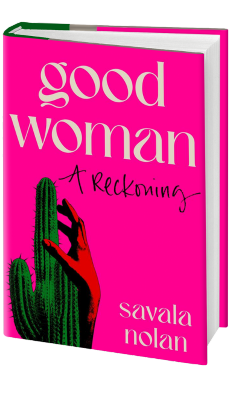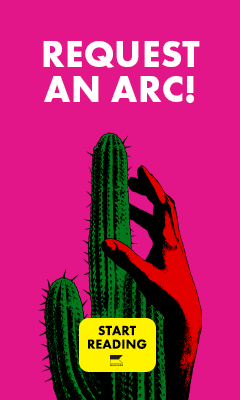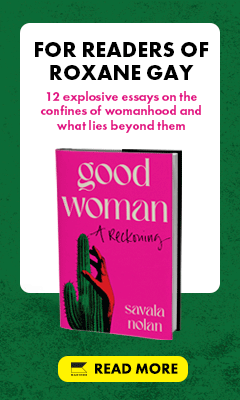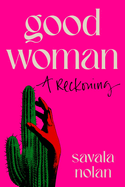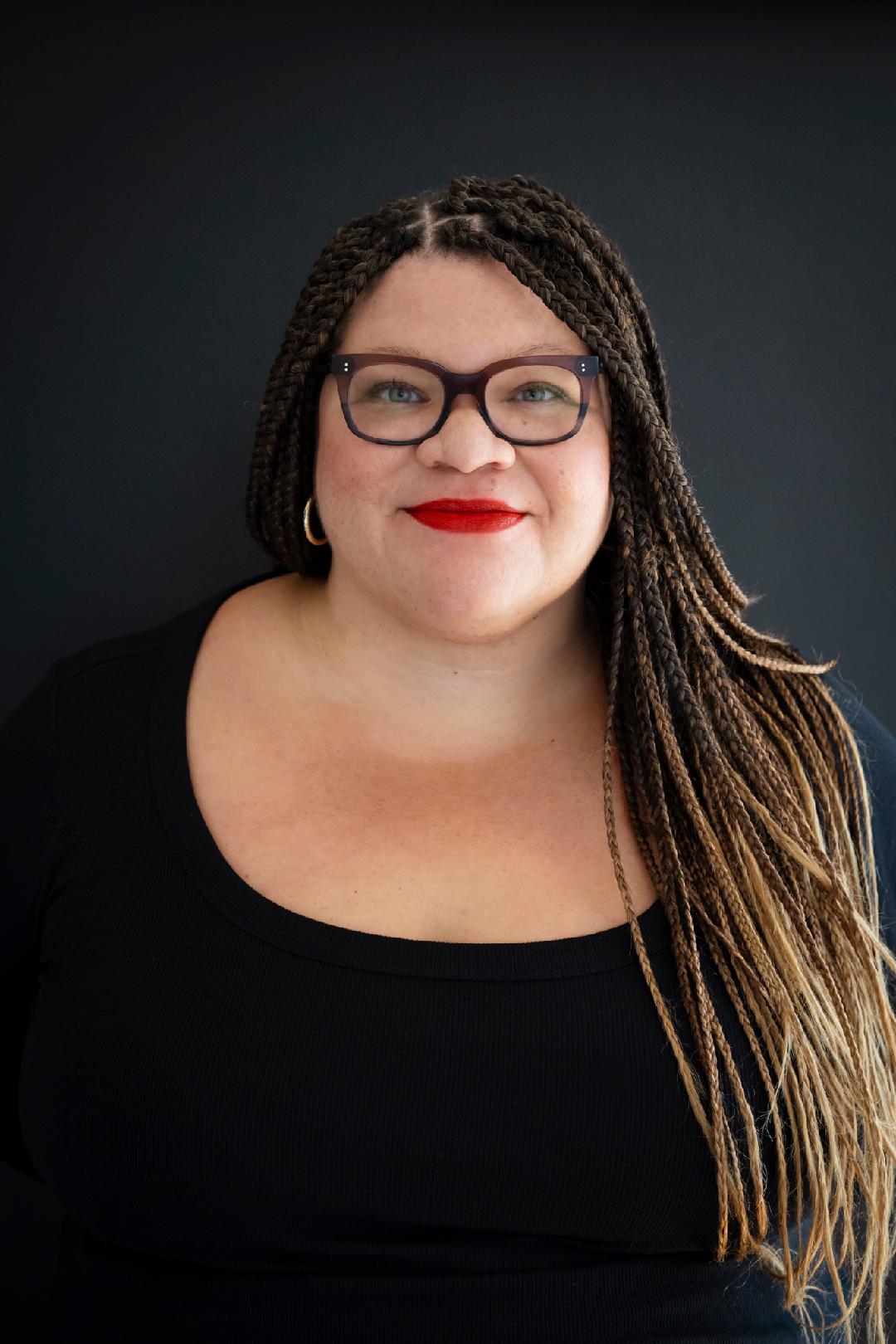Good Woman: A Reckoning
by Savala Nolan
Reflecting on a life lived triumphantly in the margins, Good Woman: A Reckoning by Savala Nolan revels in the author's raw, unfiltered femininity and offers a compelling vision of womanhood unhindered by the "herd think" of cultural expectations. The author, now in her "thunderous middle years," spent her earlier decades flattening herself into the "good woman" mold, only to realize that it did not deliver on its advertised benefits. It was, in fact, a convenient, persistent lie women fall for all the time. What to be, then, if not a good woman? Over the course of 12 electrifying essays that lean into history, popular culture, spirituality and domesticity, Nolan demonstrates what it means to trust wholly in one's body, to honor one's complexities and to thrive "in a world that hates women." It's about embracing the antiheroes of our stories and tasting "the thrill of noncompliance."
Nolan (Don't Let It Get You Down) is an essayist and law professor with a gift for articulating with devastating precision societal truths women grapple with, from the proximity of sex to violence and the suppression of female hunger to a woman's contradictory desire for both independence and protection. For her, discovering what lies beyond goodness meant a powerful reckoning with diet culture, sex, intimacy, and the probing of her racial legacy as a Black woman with a white mother. It was a realization that marriage is not the only satisfying way to be in a relationship, that women "deserve the full range of human experience."
In the startlingly clear-eyed first essay of this collection, "Refusal," Nolan takes her sexual and emotional temperature and unravels years of social conditioning. She turns toward something far better, a counter-cultural pivot toward what the author refers to as "playing the villain." To be self-possessed and self-actualized in our patriarchal society is, she explains in a later essay, "downright villainous."
A central theme of Good Woman is motherhood, the sheer all-encompassing nature of it and the realization that Nolan's daughter will look to her as a role model. While society prefers us to be "perennially pleasant, agreeable, and pleasing," Nolan chooses to create a home life free from diet culture, one where "edgyplay" and identifying with the antagonist is encouraged. For a writer who sees her "otherness as a windfall and not a curse," it is about demonstrating for her daughter "the vitality and value of the margins."
The essay "Mothers Superior," stunning in scope, describes mothering as a "godlike function" and makes a persuasive case for motherhood as a far more accurate description of God. While her Judeo-Christian upbringing enforced the notion of God the father bathed in paternal grandeur, this never rang true for Nolan. She writes of her regret for the youthful years when God was an alienating concept that prevented her from tapping into the divine, but also much joy at a spiritual connection now enriching her life. Not one to dwell on missed opportunities, Nolan is instead energized by the present, feeling compassion for the person she was, and forgiving of those who tried to fit her into a wrong-sized, ill-fitting box.
Diets were always a part of the author's life. She absorbed early on that her fatness meant she was bad. The three-year-old who went on a starvation diet became the college girl fueled toward anorexia and bulimia by self-hatred and others' praise of her thin body. She and her mother went on countless diets together, dieting being a process "by which a woman shows she understands her role in society." How subversive then to liberate oneself and embrace "body neutrality."
Nolan draws an intriguing connection between the "cultural mistrust of Black women's actual appetites" and the cultural mistrust of their "creative appetites," and she offers a revelatory example to prove her point. The essay "Lest We Die of Hunger" opens with admiration for the artist Nicki Minaj's daringly seductive pose on the record cover of Anaconda. It originates from "a certain aesthetic strain of American Blackness," explains Nolan. Negative media reaction to the Anaconda cover was swift and damning. Nolan juxtaposes Minaj's "Black pose" with Pablo Picasso's Les Demoiselles d'Avignon, which depicts five brown and black nude female bodies. Picasso's masterpiece is universally admired, his use of women's naked bodies to produce art unquestioned, while Minaj's use of her own body to make art was considered "too raunchy." Exposing this breathtaking level of hypocrisy, Nolan uses it as an opportunity to engage in a conversation about Black female artists through history, including cabaret performer Josephine Baker of Folies Bergère fame.
Nolan skillfully deploys the past to contextualize and understand the present when writing with lyrical brilliance about the not-so-invisible thread linking women like Sally Hemings, the slave-mistress of Thomas Jefferson, to the author herself. Time is not only linear, Nolan asserts, it keeps circling back so that we are not far from our racist past. Sarah and Joel, the white great-grandparents who helped raise Nolan's mother, are connected through time's "loops" to Nolan's daughter, their Jim Crow-era upbringing "an alarmingly close connection" to the present day.
Crafted with Nolan's intellectually curious, animated narration, Good Woman will resonate with readers who sense that things are not working out quite the way they should. For them, Nolan's essays offer a dynamic framework, a "working compass" for redesigning our roles without altering or diluting the magical essence of what makes us uniquely female. --Shahina Piyarali



